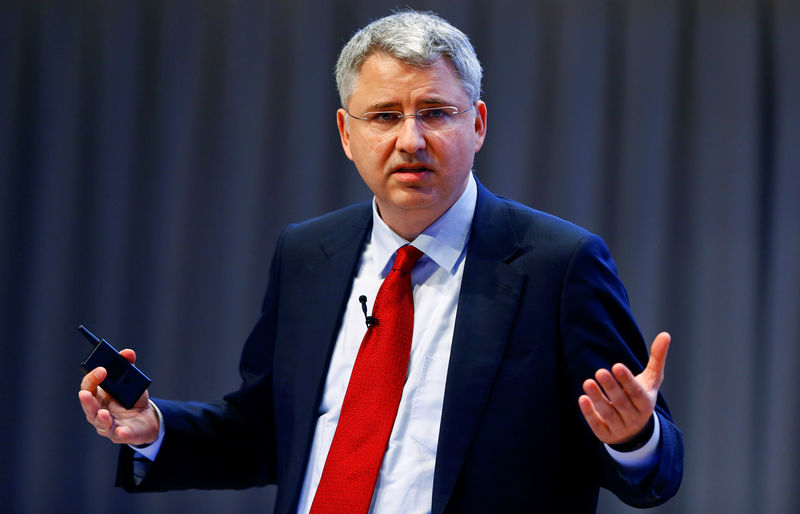By John Miller and Paul Arnold
BASEL, Switzerland (Reuters) - Swiss drugmaker Roche (S:ROG) sees medicines in its own pipeline driving sales growth over the longer term, Chief Executive Severin Schwan told Reuters on Friday, adding he will not pursue takeovers simply to keep revenue rising.
In an interview at Roche's Basel headquarters, Schwan also said ongoing U.S. Federal Trade Commission (FTC) scrutiny of Roche's $4.3 billion takeover of Spark Therapeutics (O:ONCE) came as a surprise, forcing delays.
Roche has twice upgraded 2019 sales forecasts, the latest time to mid- to high-single-digit percentage rate growth, as medicines including Ocrevus for multiple sclerosis and Hemlibra for haemophilia A offset incursions by rivals' copies of its $22 billion-per-year cancer trio Herceptin, Rituxan and Avastin.
Schwan sees these newer drugs -- combined with late-stage trial hopefuls including for Huntington's disease, lupus and spinal muscular atrophy -- maintaining momentum without forcing him to look beyond Roche's own research departments for help.
"I feel confident that we have a strong pipeline that would support growth in the longer term," said Schwan, in his 12th year as CEO.
Roche shares have risen 11% this year, lagging the 20% gain of the Stoxx European Health Care Index (SXDP), as investors continue to worry about rivals' copies taking market share in Europe and increasingly in the United States, Bank Vontobel analysts said in an Aug. 30 note.
Schwan distanced himself from big takeovers, saying M&A to spur growth is too risky.
"I don't think it's a wise strategy in the long term to fill a growth gap by M&A," he said. "If you start filling gaps, you run the risk that you overpay or you take on board assets which do not fit strategically."
Still, Roche is screening bolt-on technology deals, Schwan said, such as the Spark transaction to add one approved gene therapy, $850,000-per-patient blindness treatment Luxturna, and several others in trials, including for haemophilia A.
The FTC's move to put the Spark transaction under its microscope came unexpectedly, said Schwan, forcing him to abandon original expectations to take ownership by June.
It is now expected by year's end, he said, at identical terms announced in February.
"We thought we should close this relatively quickly without a more-detailed review," Schwan said. "That was not in line with our expectations."
Completing the Spark deal will likely saddle Roche with some of the same pricing challenges faced by Schwan's Swiss rival Novartis (S:NOVN), whose $2.1 million gene therapy Zolgensma for spinal muscular atrophy is the world's costliest one-dose medicine.
Novartis has suggested models in which insurers pay over time, to soften the hit. Spark's gene therapies for rare diseases may also become installment-plan candidates, Schwan said.

"In other words, if the gene therapy works, we agree on a certain annual amount over a defined number of years," he said. "If it should not continue to show the response which was hoped for, then the payment stops."